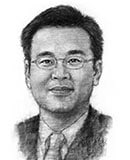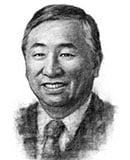Since 2011, investor enthusiasm for China has been somewhat tempered by concerns that the country’s rapid economic rise was slowing down, the financial reporting of some Chinese companies was unreliable, and the present political transition might hamper much-needed economic and regulatory reforms. McKinsey principal Bruno Roy recently sat down in Beijing to consider the outlook with four leading private-equity investors: Jin-Goon Kim, a partner at TPG; Suyi Kim, managing director of Asian private equity at the Canada Pension Plan Investment Board; David Qiu, a managing director at Hony Capital; and Jonathan Zhu, a managing director at Bain Capital Asia. (For more on these private-equity players, see sidebar, “Four leading private-equity investors.”) What follows are edited highlights of their conversation.
The Quarterly: How would you describe the current state of private equity in China?
Jonathan Zhu: “Transition” is the word that comes to mind. During the first decade of the 21st century, the investment environment was tremendous: revenues and profits were rising and capital markets were accommodative. A lot of private-equity firms generated extraordinary returns, and this attracted many new general partners into the fray between 2007 and 2009. Things have been more difficult in the last couple of years, and looking ahead we don’t see a rebound before 2014. The macro tailwind isn’t there and the exit options aren’t very favorable. We still see lots of opportunities, but it will take a different approach and a different skill set to capitalize on them.
David Qiu: In the past, it was possible to achieve above-average returns by investing in construction materials, machinery, or the export-orientated industries. But the drivers of the Chinese economy are now changing, and picking the winning sectors is much harder. How much runway is there left in basic industrialization? Will urbanization still generate outperformance? Is it now all about the consumer? These are the questions we are wrestling with right now.
Suyi Kim: China is about 20 years behind the US and ten years behind Europe in terms of private-equity market development. It’s maturing just like any emerging market. We are seeing that as the overall growth slows, more money is chasing a limited number of opportunities. General partners cannot just rely on the overall growth of the economy and the expansion of multiples between entry and exit; they will have to be more active in adding value and developing multiple exit options.
Jin-Goon Kim: The changes that have been taking place in Chinese private equity over the last decade are happening twice as fast as they did in the US or Europe. Five to ten years ago, it was about money and relationships—you could bet on the pre-IPO and often make good returns. Then new people came into the market, and firms were forced to develop an angle and special expertise. The third stage, which we are in now, is about PE firms helping entrepreneurs build better companies and adding value to the businesses. PE has to pick winners, but as the macro and industry environment evolves there will be fewer sectors that will win and only a few winners in each sector. It’s not about passively betting on a business to make a two- to three-times return; it’s about figuring out how to drive outsized returns by building strong leaders in winning sectors. Many general partners haven’t seen a full cycle yet—with the opportunity that provides to learn from mistakes—and they are going to struggle.
The Quarterly: In China, PE firms seldom operate with majority control. How do you exert influence as a minority shareholder?
Suyi Kim: The model in China is sometimes quite different from what you find in the West, so it’s really important for GPs to be able to influence entrepreneurs, management, and the majority shareholder, and that the chemistry is right. It’s worth bearing in mind that a lot of company owners are skeptical about how much value private-equity people can bring in, so PE firms have to show them how it can work.
Jin-Goon Kim: As one of the first international PE firms to enter the China market, our model has been to invest in large iconic companies where we have influence or joint control. Even as a minority stakeholder, we can add value, helping to build the business and ensuring effective governance.
Jonathan Zhu: We either have full control or significant influence—we don’t make passive investments. As a result, we make fewer investments than many others. But as investors, we are not there to take the place of management teams. Instead, we typically send our portfolio executives to work with company management teams to develop strategies and work on specific initiatives, whether in a control transaction or a minority transaction.
David Qiu: If you are making a minority investment yet still hope to exert significant influence, management-team diligence becomes critical. We do background checks before we make an investment, especially on the CEOs of private companies. It’s really important to find out about their history, notably what entrepreneurs have been doing in the previous 10 to 15 years, perhaps through talking to industry people who have worked with them. Even if an industry looks attractive, we won’t invest unless we really like the chief executive. We’d rather be in a mediocre industry where we have confidence in the CEO than be in a great industry where we do not trust the CEO.
The Quarterly: What will it take for China to have leveraged buyouts of the kind so common in the United States?
Suyi Kim: For three decades, many companies have been run by first-generation entrepreneurs who have not wanted to cede control. As the structure of the economy matures, I think you will also see a new generation more willing to contemplate full buyout deals.
David Qiu: A lot of the balance sheets of Chinese companies are already overleveraged as a result of the capital expenditure and working capital needed to support their growth. As growth slows and those borrowings fall, there may be more free cash flow to support buyout deals.
Jonathan Zhu: For leveraged-buyout deals you need leverage! And that’s been virtually impossible for renminbi-denominated onshore funds. In an offshore context, leveraged structures are not terribly tax efficient. The Focus Media deal has been a recent exception, so it will be interesting to see how that goes.
The Quarterly: Which sectors are you most excited about?
David Qiu: We like service sectors like insurance and financial services, which will benefit from a more wealthy aging population. But there are regulation issues that still have to be overcome. We will certainly be wary of companies that just relied on low labor costs, low energy costs, and low pollution-control costs in the past. Their growth cannot be sustained by these factors alone.
Jonathan Zhu: The 20 to 30 years of China as the factory of the world may have run their course, especially if you are benchmarking against the likes of Sri Lanka and Vietnam. In innovative businesses where labor costs are less important or skills are highly prized, though, China will be more competitive. And in some industries, labor-cost advantages are still meaningful. We have invested in a company with a lot of IT-engineering capabilities, whose costs are still a fraction of what they would be in the US and Europe.
Jin-Goon Kim: China has a very consumption-driven growth strategy, and we will align our investment strategy with that, which includes retail–consumer, health care, and technology, media, and telecommunications. We will also continue to invest in the sectors that we’ve built strong expertise in, such as financial services and energy. Some of our most successful deals are in these sectors, such as Daphne International, Lenovo, Shenzhen Development Bank, and NT Pharma.
The Quarterly: Do you think PE companies will get involved with corporations as they go shopping for outbound acquisitions?
David Qiu: This is a great change for Chinese companies, and there are now more than 70 of them in the Fortune Global 500, although admittedly most are state-owned enterprises and not fully market driven like Lenovo and Haier are. In my view, many Chinese companies still lack the capabilities to operate globally. The market and legal structures are very different, on top of which there’s a very big domestic market to focus on. PE certainly has a role to play in helping those that do make acquisitions outside China.
Jin-Goon Kim: TPG has worked on many cross-border opportunities, taking US companies to China and Chinese companies into other regions. We are working on more deals of this kind, and I think PE will play a big part in both supplementing the talent pool and supplying expertise on foreign markets.
Jonathan Zhu: Some companies do require global expertise; others should concentrate more on figuring out their domestic growth strategy. International expansion is a very difficult process, after all. I often challenge Chinese businesspeople to tell me why they think they are capable of pulling off an overseas acquisition and why they would be better at running the business than the existing owners. When they explain that they want to buy technology, I point out that there are lots of ways of acquiring technology without buying the company that makes it and without spending a lot of money. Why not enter into a technology-licensing agreement, for example?
The Quarterly: Foreign firms in several sectors are apt to complain that local firms have an unfair advantage in China. Do you think that’s true from a PE perspective?
Suyi Kim: Some of the approval processes would seem to favor local firms, and certain sensitive sectors are not open for foreign firms to have ownership. That said, foreign firms with pan-Asian or global platforms have the advantage of being able to allocate capital to other markets if China is not looking good. Over time, I believe the limits to foreign investors will be removed as the regulatory environment matures and the currency becomes freely tradable.
Jin-Goon Kim: Local PE firms do have privileged access to certain regulated industries, notably in financial services. But what’s really going to matter is having strong operational capabilities and local teams that have local relationships and operate in a local business environment, while demonstrating an ability to bring in global resources and international sector expertise.
David Qiu: As the traditional growth-capital transactions go away and as our industry moves increasingly toward active ownership, I think it’s the local firms who are lagging behind and who need to catch up. Foreign firms can bring to bear real operating expertise and deep functional skills in areas like pricing, branding, and lean operations—skills they have applied around the world. If local firms don’t build these capabilities, they will likely be left behind.
The Quarterly: You have all been active in China for a long time. What is your biggest lesson when you look back, and what worries you most when you look forward?
David Qiu: The biggest lesson is that investment, above all, is a people business, and it’s more important to look at the quality of the entrepreneur than the projected returns. One of the most important challenges we are currently facing is a lack of qualified talent in the portfolio companies themselves. We should have more clarity on the direction of policy changes over the course of the months to come. This could have huge implications for our portfolio companies and investment strategy in the years ahead.
Jin-Goon Kim: Our key learning has been how important it is to find a great partner who has made the right call on sectors, has great relationships and resources, and deep insights into his or her industry. You don’t have to get everything right, on an investment horizon of seven to eight years, to shape the market and transform the business. That’s why we spend so much time and effort understanding the background of the leadership teams of our potential investee companies.
As for risks, it’s worth remembering that the development of the private sector has been very short, uneven, and volatile. The structure is far from ideal, and the sector does not have sufficient management talent, operational capabilities, and access to resources.
Jonathan Zhu: I think it is key for investors to understand whether they’re putting their money into an institutional or a personal business. Also, if you look at China from far away, you’ll think of it as a country blessed with 30 years of uninterrupted growth. Not true. The business cycles in China can be short and sharp. Besides the political transition, there are many risks—from the environment and official corruption to external issues like territorial conflict—that keep us awake at night.






